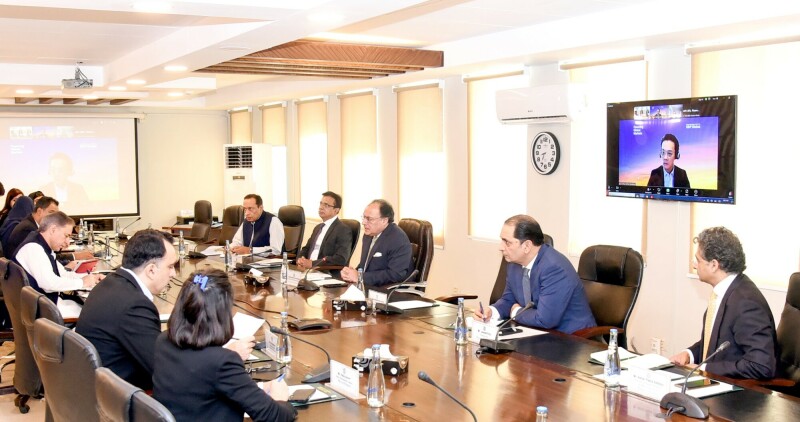Finance Minister Muhammad Aurangzeb has said that Pakistan’s tax-to-GDP ratio is expected to reach 10.6% by the end of the ongoing fiscal year.
This would mark progress toward the government’s target of raising it to 13% by the conclusion of the 37-month Extended Fund Facility (EFF) with the International Monetary Fund (IMF), Aurangzeb stated during a Zoom meeting held on Friday with representatives of S&P Global Ratings as part of the ongoing Pakistan Sovereign Ratings Review.
During the session, Aurangzeb presented a detailed overview of the government’s macroeconomic reform agenda and reaffirmed Pakistan’s commitment to achieving sustainable and inclusive economic growth by enhancing productivity and promoting exports, read a statement released by the Finance Division.
SBP-held foreign exchange reserves drop $367mn to 7-month low
He emphasized the continuity of reforms across key sectors including taxation, energy, state-owned enterprises (SOEs), privatization, public finance management, rightsizing of government functions, and more active debt management strategies.
He said that the separation of the Tax Policy Office from the Federal Board of Revenue (FBR) was part of a broader effort to align tax policymaking with economic value principles rather than administrative convenience.
Aurangzeb noted that inflation and the current account deficit (CAD) had “remained a good story throughout the year, contributing positively to overall economic stability”.
He also highlighted the achievement of surpluses in both the primary balance and the current account as major milestones, underscoring the improving fundamentals of Pakistan’s economy.
The finance minister stated that the country’s external portfolio was well-managed, with foreign exchange reserves projected to reach $14 billion by the end of June, “supported by upcoming institutional and trade inflows, strong remittances, and easing oil prices, all of which are helping reduce pressure on the external account”.
Aurangzeb upbeat about reversal of US tariffs
During the meeting, the finance minister also shared insights from his recent visit to the United States for the World Bank/IMF Spring Meetings. He conveyed that the feedback received from these meetings consistently reflected appreciation and support for Pakistan’s structural reforms and macroeconomic stability achieved over the past 14 months.
He concluded by noting that international partners strongly urged Pakistan to stay the course, deepen the reform momentum, and focus on embedding permanence in economic stability.


